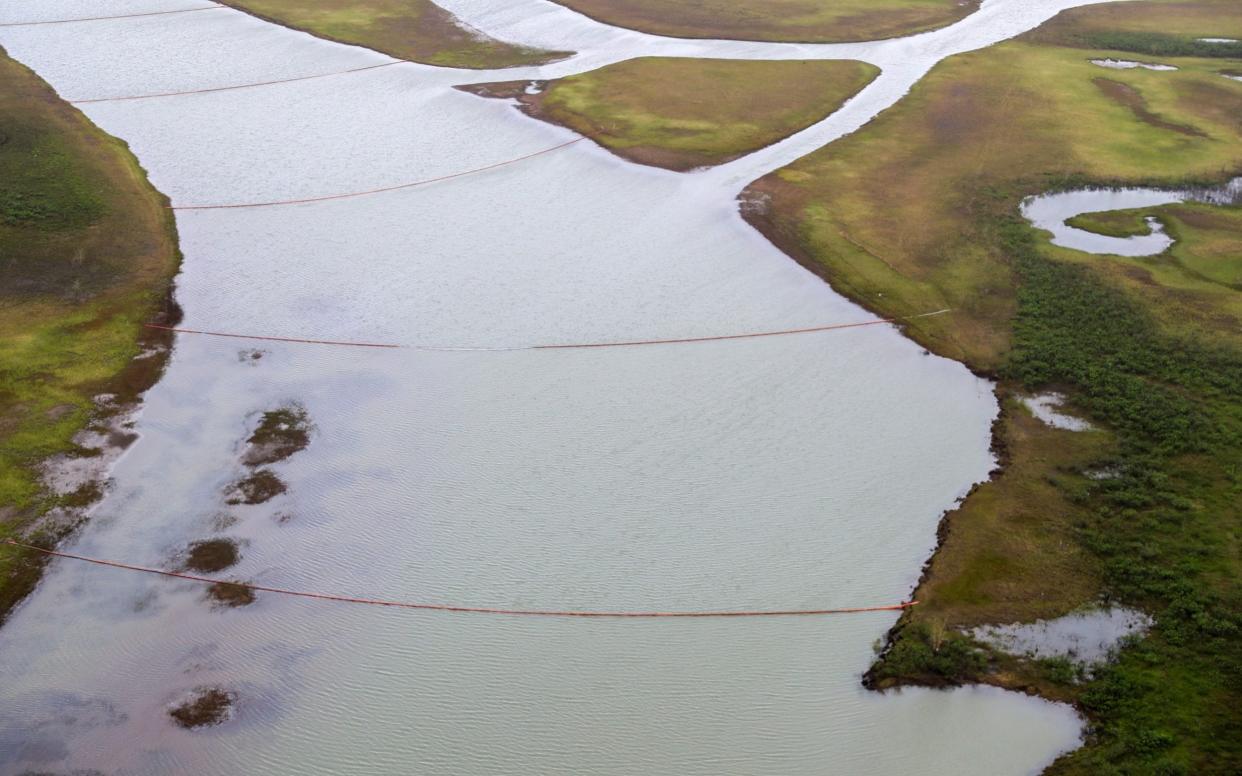Putin calls disastrous Arctic fuel spill unprecedented for Russia

Vladimir Putin, the Russian president, has called ongoing efforts to clean up a giant fuel spill in the Arctic unprecedented for Russia, while officials say it will take the local river system a decade to recover.
Some 20,000 metric tonnes of diesel fuel spilled into the river system from a tank at a power plant near the city of Norilsk on 29 May in the environmental catastrophe comparable only to the Exxon Valdez oil spill in 1989 when 37,000 tonnes of oil leaked off the coast of Alaska.
Thawing permafrost beneath the fuel tank is believed to have caused the spill that turned the local river crimson.
“Russia has not had experience of cleaning up such large spills into bodies of water before,” President Putin said on Friday in a video conference with emergency officials and the owner of the power plant.
The power plant’s director has been taken into custody and charged with causing environmental damage but questions are being asked about why it took several days before local officials mounted a proper response to react to what has been described as the Arctic’s worst environmental disaster.
Diesel fuel has contaminated the local river and reached a large lake that serves as the basin for another river flowing into the Arctic Ocean.
The Russian leader, who earlier this month called a state of emergency in the area, on Friday praised clean-up workers for containing the spread of the fuel but he conceded that “the consequences for the environment and biodiversity are severe.”
The head of Russia’s state fisheries agency told Mr Putin that it would take at least ten years for the local water system to fully restore its biodiversity.
Vladimir Chuprov, a project director at Greenpeace Russia, on Friday estimated the environmental damage to the waters at about 100 billion rubles (£1.1 billion), saying that it could have been much lower if local authorities had responded sooner.

